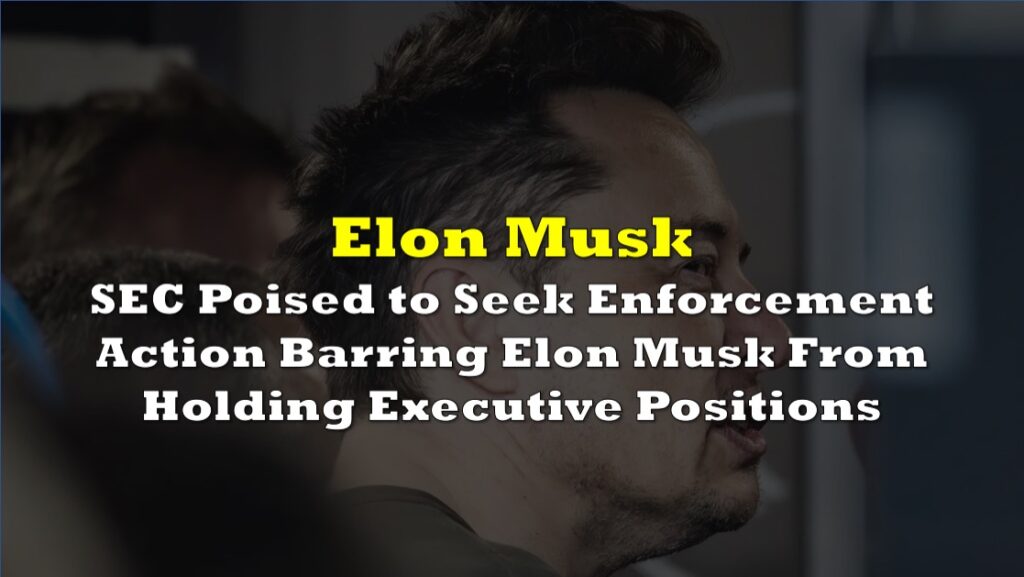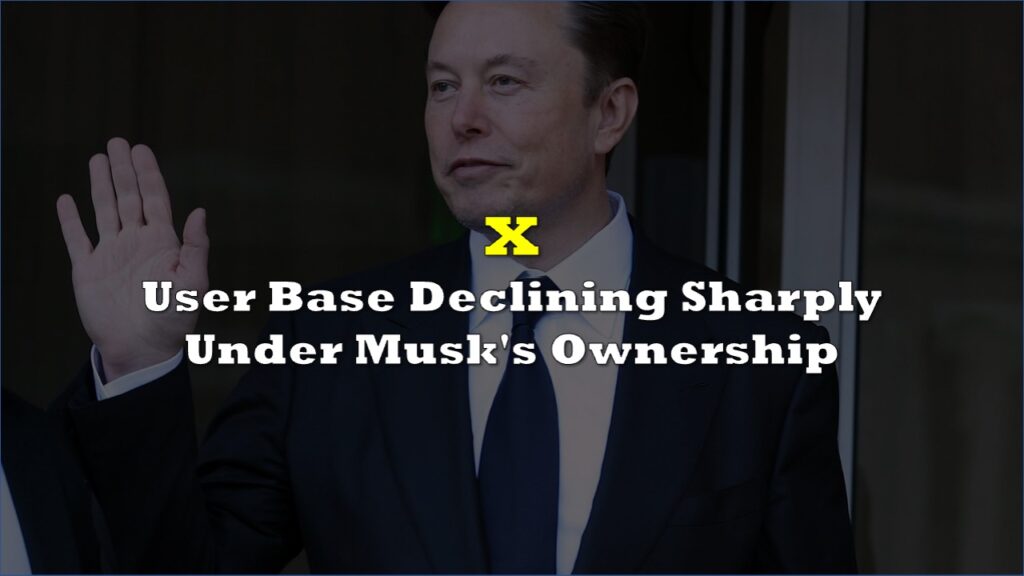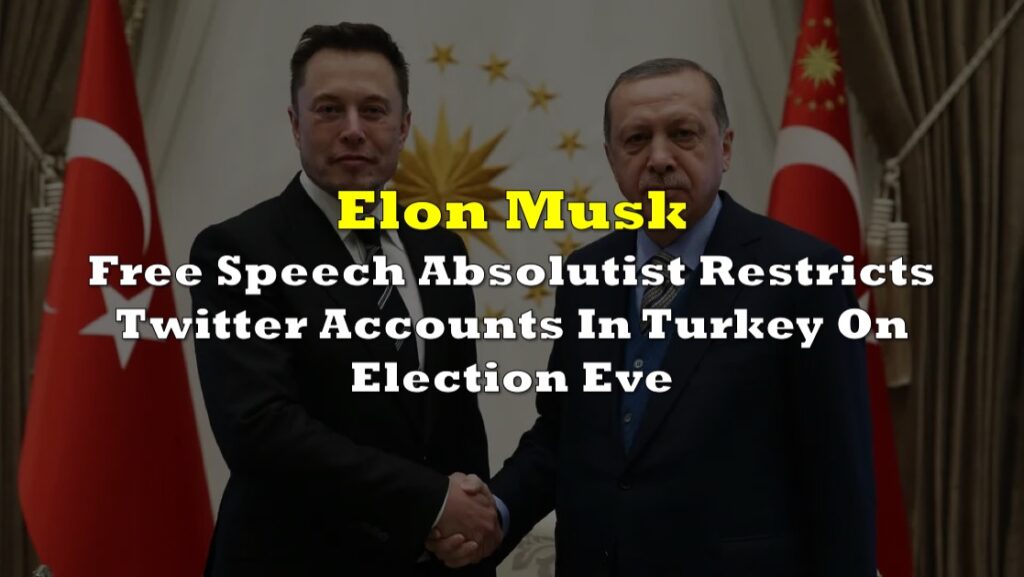Apparently, ElonJet is where Elon Musk draws the line on “free speech”
Twitter permanently suspended an account that followed the whereabouts of Elon Musk’s private jet. The social media firm banned the @ElonJet account, which had more than 500,000 followers, after posting a new set of edicts that appeared to be crafted solely to excuse the termination of the jet-tracking account.
Jack Sweeney, a 20-year old college freshman, manages the Twitter account Elon Musk’s Jet (@ElonJet) that monitors the Tesla (NASDAQ: TSLA) CEO’s private jet: locations of take-off and landing and the duration of each flight. He uses a bot that feeds on the open-source flight data from ADS-B Exchange.
Twitter just resuspended @ElonJet. Good to see that Twitter's new management is consistently inconsistent.
— Oliver Alexander (@OAlexanderDK) December 15, 2022
HT @Thorman_Lungie https://t.co/c1lkKzf1oC pic.twitter.com/L7CdEY79wW
The move comes a little over a month after Musk tweeted that his “commitment to free speech extends even to not banning the account following [his] plane, even though that is a direct personal safety risk.”
My commitment to free speech extends even to not banning the account following my plane, even though that is a direct personal safety risk
— Elon Musk (@elonmusk) November 7, 2022
But the risk seems to have changed since then. In a Twitter thread, Musk announced that any account “doxxing real-time location info of anyone will be suspended, as it is a physical safety violation.”
Bizarrely, this seems to have stemmed from a personal encounter. Musk relayed the experience where his car carrying his two-year-old son X Æ A-Xii, known as X, was “followed by crazy stalker” who would later block the car and jump on the hood. The Tesla chief wasn’t inside the car when the incident happened.
It’s unclear how Musk linked the stalking attack on his family to @elonjet, but it didn’t stop him from announcing that legal action would be taken against Sweeney.
Any account doxxing real-time location info of anyone will be suspended, as it is a physical safety violation. This includes posting links to sites with real-time location info.
— Elon Musk (@elonmusk) December 15, 2022
Posting locations someone traveled to on a slightly delayed basis isn’t a safety problem, so is ok.
Anyone recognize this person or car? pic.twitter.com/2U0Eyx7iwl
— Elon Musk (@elonmusk) December 15, 2022
Aside from @elonjet, the platform seems to have suspended flight tracking Twitter accounts related to Sweeney, including the account that tracks jets of Russian oligarchs. Sweeney’s account has also been banned corollary.
UPDATE: @JxckSweeney has been banned from Twitter pic.twitter.com/AXOmbfiosy
— 𝘽𝙧𝙮𝙖𝙣 𝙋𝙖𝙨𝙨𝙞𝙛𝙞𝙪𝙢𝙚 (@BryanPassifiume) December 14, 2022
And some additional ones pic.twitter.com/222BriPtsz
— OSINTtechnical (@Osinttechnical) December 14, 2022
Hey folks (@RonFilipkowski @DWUhlfelderLaw ), not only has Elon suspended @ElonJet, he's now prevented Flight Aware from publicly tracking his airplane. I guess it's good to be rich.
— globetrotter (@globe55trotter) December 14, 2022
This should be publicly available information. I'm sure someone can figure out how. pic.twitter.com/VQ2xCmBHra
Twitter “updates” policy
In parallel, Twitter released an update on their private information policy, mainly to prevent any account to share someone else’s live location.
“You may not publish or post other people’s private information without their express authorization and permission. We also prohibit threatening to expose private information or incentivizing others to do so,” the platform said in its updated policy.
An account is still free to share its own live location and others’ historical location, but tweets would be remove if it will share another account’s current live geotag or private information online–commonly referred to as doxxing.
When someone shares an individual’s live location on Twitter, there is an increased risk of physical harm. Moving forward, we’ll remove Tweets that share this information, and accounts dedicated to sharing someone else’s live location will be suspended.
— Twitter Safety (@TwitterSafety) December 14, 2022
However, it is not all black and white for the platform. It maintains that it recognizes “that there are instances where users may share images or videos of private individuals, who are not public figures, as part of a newsworthy event or to further public discourse on issues or events of public interest.” In those cases, the platform said that it “may allow” the content to remain on Twitter.
Twitter also said that it would consider the information public if it was already shared “somewhere else” before it was posted on the platform. Currently, it isn’t allowed to post a link of ElonJet’s Facebook or Instagram account–which continue to track Musk’s jet flight pattern–on Twitter.
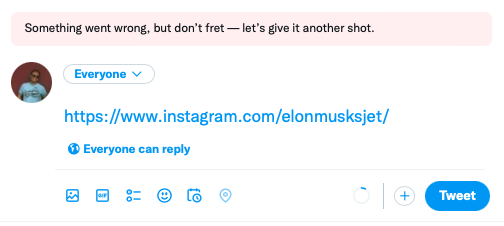
The platform added the rubrics that they would use in determining which content would be considered doxxing, including the type of information posted “because certain types of private or live information carry higher risks than others” and who posted the information.
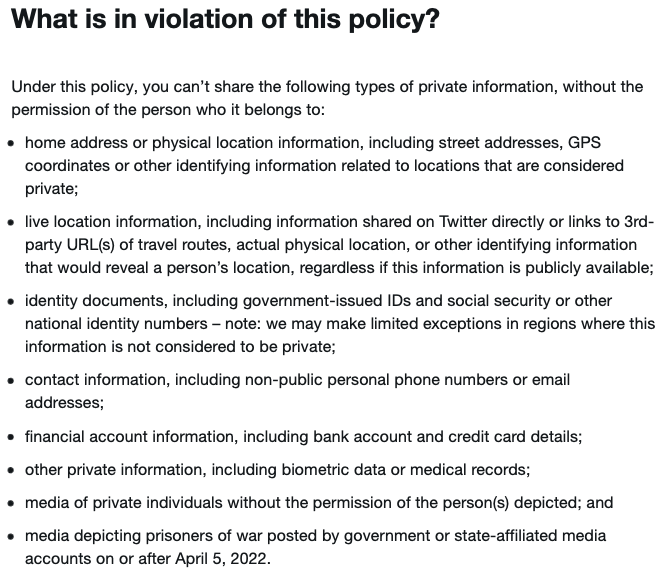
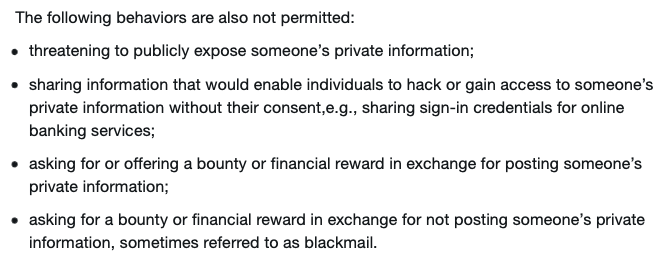
However, in discussing which media content is not a violation of the updated policy, Twitter included in the list posts where “the media and the accompanying tweet text add value to the public discourse or are shared in public interest” and “the subject of the media is a public figure.”
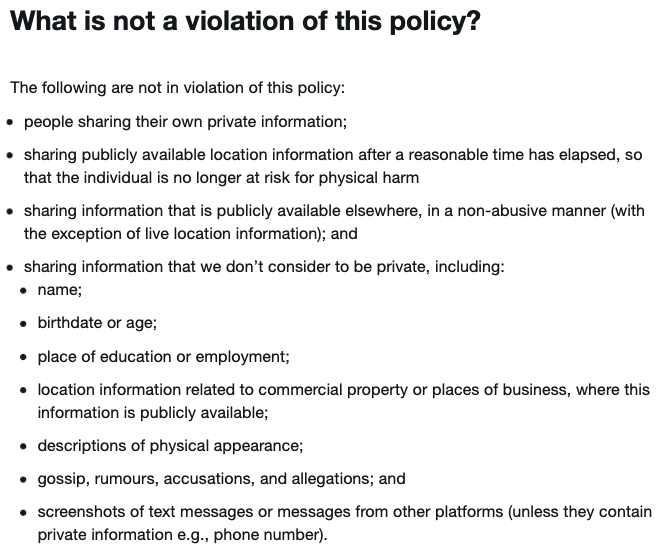

Following CEOs’ private jets is nothing new in the hedge fund sector. Some traders pay upwards of $100,000 for services that retrieve flight data of deal-makers’ travels.
In parallel, it seems so far that the updated policy only applies yet to flight tracking accounts that are connected to Sweeney. Other flight tracking Twitter pages are reportedly still active and not yet suspended.
Just gonna be clear, this appears to be, at the moment, a Twitter-wide ban on flight tracking accounts run by @JxckSweeney.
— OSINTtechnical (@Osinttechnical) December 14, 2022
There are others still up, though a major portion of the flight tracker bots on the platform were run by Jack.
Our accounts that track dictators' planes are still functional. And our website https://t.co/9MfHLxk5PT won't be shut down by a billionaire.
— Emmanuel Freudenthal (@EmmanFre) December 15, 2022
If you want to know which authoritarian government landed in Paris, London or Geneva, check this out:https://t.co/cKoSrQwio5
A car is not a plane. A plane is not an individual.
— 🏴🇺🇦𝕁ames ℂalbraith (@eadingas) December 15, 2022
Musk and ElonJet got their first encounter at the start of this year when the billionaire asked the then-19 year old student to take down the account that tracks his jets.
The Tesla chief directly messaged Sweeney asking to take the account down, saying “[it’s] a security risk.” Eventually, Musk offered US$5,000 to delete the account and prevent “crazy people” from tracking his flights. Sweeney asked US$50,000 instead, saying the money can be for his college or a Tesla Model 3.
Musk reportedly messaged that it didn’t feel right “to pay to shut this down.”
“$5,000 is not enough for how much I get out of it,” Sweeney said. “It doesn’t replace anything, like the enjoyment factor.”
READ: Did Elon Musk Start Buying Twitter Shares Because of @ElonJet?
Banning the accounts that tracks public figures and chief executives’ flight patterns is particularly noteworthy after Musk’s series of Twitter Files that were said to be revealed in the name of “free speech.” He also recently castigated Apple for pulling out its advertising from Twitter, essentially claiming that the tech firm and its CEO Tim Cook hate free speech.

READ: What Elon Musk Might Be Missing About “Free Speech”
ElonJet’s accounts in other platforms continue to track the Twitter chief’s jet flight patterns.

Information for this briefing was found via CNN, Zero Hedge, and the sources mentioned. The author has no securities or affiliations related to this organization. Not a recommendation to buy or sell. Always do additional research and consult a professional before purchasing a security. The author holds no licenses.







